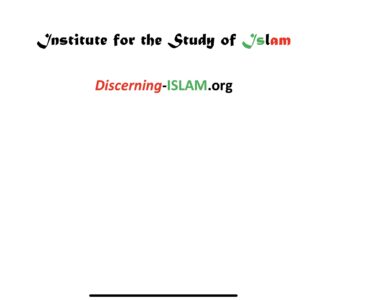Chapter 5
THE GODLY USE OF WEALTH
Coming To Terms With The Marketplace
THE CHRISTIAN CHURCH has never found it easy to come to terms with the Marketplace. There have always been those who regarded private property, interest and profit, somewhere between questionable, at best, and immoral, at worst. Some early church fathers criticized anyone who did not take the words of Christ literally to sell their possessions and give to the poor. Even some contemporary church leaders, in sermons, speeches, writings and conference resolutions, give the impression they share a deep hostility when it comes to the pursuit of profit, the market economy, and other characteristics of modern capitalism.
The general theme of these writers is clear: a market economy dependent on the institution of private property, together with a system of competitive markets, promotes profit as the criterion for survival. This may encourage freedom of individual choice, but it results in a competitive, greedy, unequal and materialistic society which runs totally counter to the teachings of Jesus on these subjects. These writers further contend that materialism, exploitation, and injustice are built into the very framework of the Marketplace. Therefore, Christians who wish to be true to their faith have no alternative but to reject the whole system. Thus businesspersons are placed in an intolerable position by the implication that they are either corrupt or naïve. But are they correct? Within the theological framework, the gathering of wealth is addressed in the message of the Gospels. A scan of verses in the New Testament concerning wealth shows emphasis on the dangerous implications of putting the pursuit of wealth above all else. The result leads to spiritual ruin. However, in Matthew 25:15-30 we see an exhortation to use whatever we have wisely by building up our treasures however large or small they may be. In this same passage we see a condemnation of laziness resulting in a casting out of the sluggard into “darkness.” So from a Christian perspective, the process of creating wealth is possible as long as it does not overshadow the pursuit of spiritual growth.
The market economy offers a far better starting point for pursuing wealth than other economic systems. Moreover, it provides enormous opportunities for Christians in business to create work structures that are authentically Christian. But, the question remains, can it be rescued from the influence of a secular humanist philosophy?
The Advantages Of Free Enterprise
The free enterprise system is one of the best opportunities to practice stewardship and caring for others. Through providing products, services, finances, and actions there are countless opportunities to support and improve the future of individuals, families, communities, and the church and missions. The free enterprise system offers not only the best, but perhaps only chance for dignity, and for the survival of Christian outreach as well.
The free enterprise system is also the basis of employment and the opportunity to grow and prosper as an employee. Perhaps the truth most overlooked by those critics of business is the essential and interdependent roles of employer and employee and the mutual advantage of shared success.
Our world is made up of various philosophies, even “philosophies within philosophies” (e.g., Christian: conservative, liberal, fundamental, etc.). No one person has the entire answer to the world’s problems, though each of us may have a portion of the truth. Whatever position we take along the spectrum, the primary issue is ethics. We need a mutually accepted standard – the Bible (biblical law in both testaments) – to provide the basis for our ethics.
An Attitude Of Generosity Towards the Poor
The Bible has a lot to say about the condition of the poor and how they got that way. It is interesting that when the Bible says it is the oppressors who are responsible for the condition of the oppressed, they are not necessarily the rich. In fact, some of those oppressors may be the poor themselves. “When a poor man oppresses those even poorer, he is like an unexpected flood sweeping away their last hope” (PROVERBS 28:3). Equally, if biblical law were respected and enforced, the rich oppressors would not find it easy to indulge in this sin. In any case, it is important to note that the Bible does not teach that only the rich are responsible for the conditions of poverty. God’s love for the poor does not mean He lacks love for those who are rich. In all His concern He emphasizes justice and fairness. “Do not pervert justice; do not show partiality to the poor or favoritism to the great, but judge your neighbor fairly” (LEVITICUS 19:15). “[God] shows no partiality to princes and does not favor the rich over the poor, for they are all the work of His hands” (Job 34:19). If we read through Leviticus, Deuteronomy, Job and Proverbs, we see God calling attention to the attitude of the rich toward those less fortunate, along with telling them how to act and live. A quotation from Deuteronomy will illustrate, this:
“If there is a poor man among your brothers in any of the towns of the land that the LORD your God is giving you, do not be hardhearted or tight fisted toward your poor brother. Rather be openhanded and freely lend him whatever he needs. Be careful not to harbor this wicked thought: ‘The seventh year, the year for canceling debts, is near,’ so that you do not show ill will toward your needy brother and give him nothing. He may then appeal to the LORD against you, and you will be found guilty of sin. Give generously to him and do so without a grudging heart; then because of this the LORD your God will bless you in all your work and in everything you put your hand to. There will always be poor people in the land. Therefore I command you to be openhanded toward your brothers and toward the poor and needy in your land” (DEUTERONOMY 15:741).
This is where we must begin with a change of attitude. How do we see others? Do we acknowledge Who really owns all things? Do we understand the role of steward or manager? Forcing a particular view (theological or otherwise) on anyone only creates hard feelings. But if God expects the rich to take care of the poor, just what does that mean? Is attitude all that is involved?
In Nehemiah 5:11-12 we learn that when priests, nobles, and officials were confronted with their wrongs, they repented. Later, in Nehemiah 8:10 and 12, we hear about forgiveness and celebration. A study of these passages brings something very interesting to light. Note the statement in Deuteronomy 15:11 (cited above), “There will always be poor people in the land.” Then, before this, in verse 4, we were told, “However, there should be no poor among you . . .” How are we to reconcile these two statements? Is something missing? The key may be found in the remainder of verses 4 and 5 “. . . for in the land the LORD your God is giving you to possess as your inheritance, He will richly bless you, if only you fully obey the LORD your God and are careful to follow all these commands I am giving you today.”
Here we see God telling us how we are to act . . . in every circumstance (PROVERBS 1:2). The references that follow are only a few of God’s thoughts on how we are to act:
“. . . acquiring a disciplined and prudent life, doing what is right and just and fair” (PROVERBS 1:3). “. . . in all your ways acknowledge Him, and He will make your paths straight” (PROVERBS 3:6). “Give, and it will be given to you. A good measure, pressed down, shaken together and running over, will be poured into your lap. For with the measure you use, it will be measured to you” (LUKE 6:38). “My brothers, as believers in our glorious Lord Jesus Christ, don’t show favoritism” (JAMES 2:1).
Of course these verses are not exhaustive but they do indicate a very specific direction. This inner attitude appears to be the “key” for determining obedience to God’s Word in these matters. Scripture answers:
“All a man’s ways seem right to him, but the LORD weighs the heart (PROVERBS 21:2). “If you really keep the royal law found in Scripture, ‘Love your neighbor as yourself,’ you are doing right” (JAMES 2:8). If anyone has material possessions and sees his brother in need but has no pity on him, how can the love of God be in him? Dear children, let us not love with words or tongue but with actions and in truth” (I JOHN 3:17-18). “If I give all I possess to the poor and surrender my body to the flames, but have not love, I gain nothing” (I CORINTHIANS 13:3).
The key measuring device for knowing whether we are on track is summarized in Matthew 6:21: “For where your treasure is, there your heart will be also.” Economic growth, a product of a world-and-life view oriented toward the future, need not exploit the poor. This view involves thrift, risk taking, hard work, respect for contracts, honesty in financial dealings, education, and dozens of other essentially Christian thought.
We have seen that God does not approve of oppression. He wants change to begin in us, with our love for Him. For those of us who “have” and who also know God’s principles, love will flow when we begin to share with the poor. Remember, we are commanded to care for the poor. But it is up to the ones who “have” to take the initiative to care for those who “have not.” It is not up to those who “have not” merely to take from those who “have.” The command is to “freely give,” not “freely take” from someone else.
NEXT: Chapter 6: Justice In The Marketplace
PREVIOUS: Chapter 4: The Functions Of A Business
Chapter 5: The Godly Use Of Wealth
https://discerning-Islam.org
Last Updated: 10/2022
See COPYRIGHT information below.




[…] NEXT: Chapter 5 […]
[…] 4: The Functions Of A BusinessChapter 5: The Godly Use Of WealthChapter 6: Justice In The MarketplaceChapter 7: A Successful […]